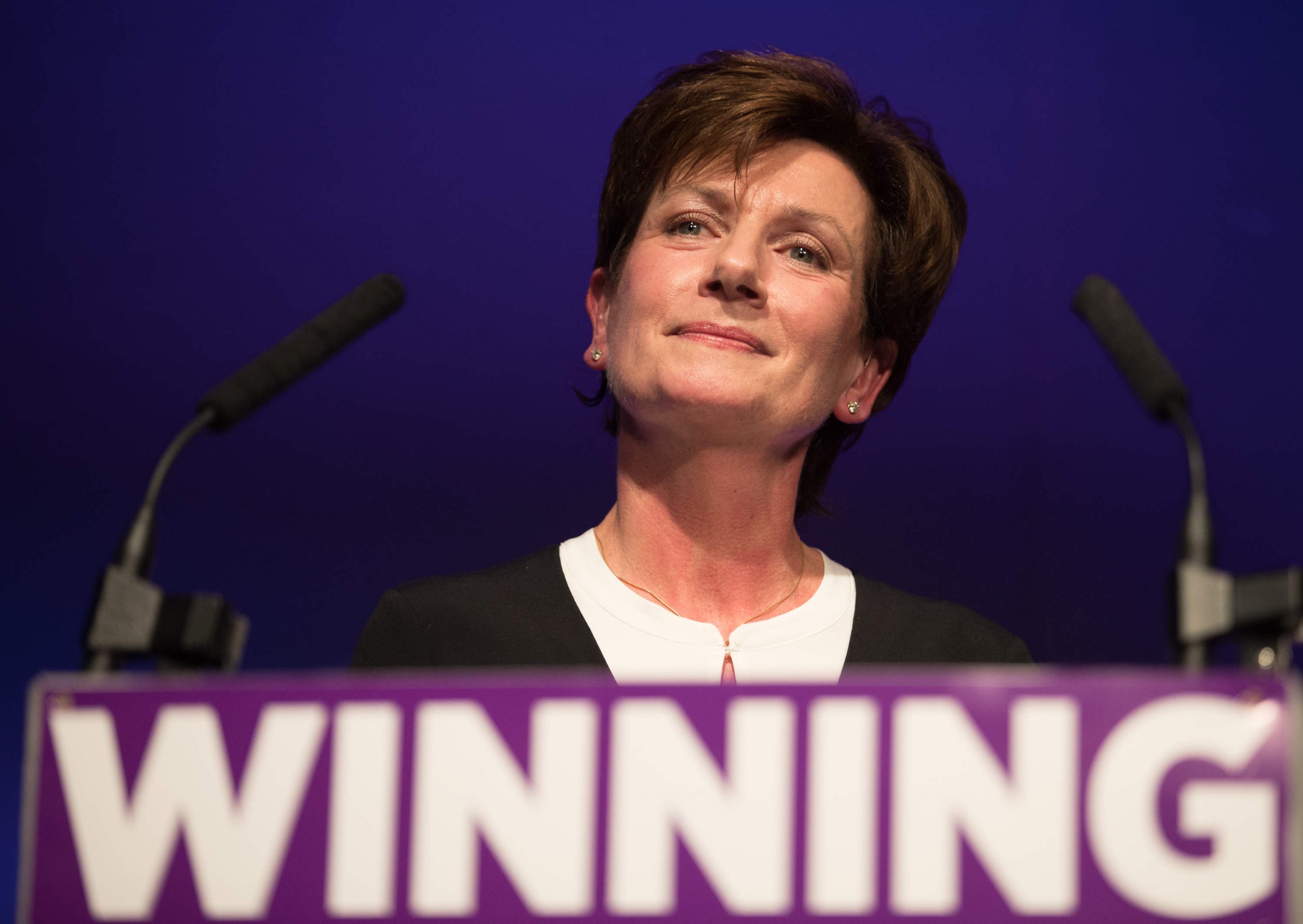
On the afternoon of 16th September, Ukip entered its post-Farage era. After a total of nine years as party leader, and more resurrections than Sherlock Holmes, Ukip messiah Nigel Farage has been replaced by Diane James, who defeated closest rival Lisa Duffy by 47.4 per cent to 25.7 per cent in a one-sided leadership election.
The immediate consensus seems to be that James won the contest by virtue of her elevated status within the party. Unlike the other candidates in the race, James could claim to be a senior figure, and her name was known to most Ukip members.
However, Ukip’s newly anointed leader is not nearly as prominent as its outgoing premier Nigel Farage – one of Britain’s most famous, and infamous, politicians. So, for those outside the Ukip bubble, it is certainly legitimate to ask: who exactly is Diane James?
James was born in Bedford in 1959 – educated at Rochester Grammar School and Thames Valley University. Before her conversion to politics she worked as a healthcare consultant for 30 years. Like many Kippers, James’ first political incarnation was in the Conservative party, where she grew increasingly disillusioned during the early Cameron years. In 2011, James officially switched allegiance to Nigel Farage and Ukip.
Politically, James rose to prominence in 2013, when Ukip was shattering Britain’s three-party consensus. James finished second in the Eastleigh by-election in February 2013, receiving 27.8 per cent of the vote and marking a 24.2 per cent increase in the constituency from 2010. Since then, she has since ascended the Ukip pyramid – representing the party on BBC Question Time and becoming its Deputy Chair, a role previously held by Suzanne Evans.
Ukip politicians are rarely far from controversy, and Diane James is no exception. In April 2015, the South East MEP stated on LBC Radio that she admired Vladimir Putin, praising the Russian President as a “very strong leader” and a “nationalist”. More recently, James has drawn fire for refusing to condemn French authorities for imposing a ban on burkinis.
Yet, despite occasionally stirring controversy in the press, James has forged quiet alliances with significant players in her party. She will hope that this conciliatory approach will help to heal a divisive feud between pro-Farage and anti-Farage factions. Indeed, the latter is spearheaded by Suzanne Evans, whose conflict with Farage has intensified since March, when she was suspended from the party for disloyalty. During the leadership contest, Evans – in alliance with the party’s National Executive Committee – enacted retribution against Steven Woolfe, Farage’s chosen candidate. During the early stages of the leadership contest, Woolfe was peppered with questions about his eligibility to stand, as leaked emails appeared to show that his party membership had lapsed. Ultimately, Farage’s favoured heir dropped out after failing to file his nomination on time .
Even in recent days, Farage and Ukip MP Douglas Carswell have traded bitter blows. Yesterday, the departing leader blasted Carswell as irrelevant, after which the Clacton MP said that Farage had never forgiven him for being elected to Parliament.
This demonstrates the scale of the task facing James. But, of all those who stood in the leadership election, she is best placed to quell internal animosity. Primarily, James has maintained allies in both camps, whilst keeping the leading protagonists at arm’s length. She secured the tacit backing of Farage, and consequently influential party donor Aaron Banks, after Woolfe dropped out of the race. Without these endorsements, James’ bid may have floundered. But, perhaps counter-intuitively, it was expedient for James to be seen as Farage’s last-choice candidate. That way, the anti-Farage clique will have been reassured that she is not merely Nigel’s puppet.
James’ peacekeeping credentials have also been bolstered by her vague policies; so vague that she failed to announce any during the leadership contest. This will enable James to listen to both sides and accommodate their divergent attitudes towards the future of the party. On the one hand, Farage’s allies generally believe that Ukip should target the north – bolstering the party’s anti-immigration stance whilst appropriating some popular left-wing ideas. On the flip side, Carswell and other libertarian-minded individuals are more relaxed about immigration, and believe that Conservative votes can be poached by adopting aggressive free market economics.
This sounds like a monumental conundrum for a new leader. Yet, if James can amalgamate potent elements of both standpoints, then Ukip could threaten Labour and Tory seats. As I have written previously , anger towards the establishment and liberal overreach did not dissipate on 23 June. If other mainstream parties falter in the wake of Brexit and do not listen to the public, Ukip may be more dangerous than ever before.
That just leaves the question: is James charismatic enough to pioneer a new era in Ukip’s history and prevent Farage from reclaiming his throne? Her acceptance speech was certainly a promising start. The new Ukip leader managed to work-in a couple of sharp quips – branding pro-EU voters as “Remainiacs” and chiding “Magpie May” for stealing her party’s grammar schools policy. If this sort of astute, witty rhetoric can be replicated consistently, then Kippers will be optimistic about the future of their party. Of course, the question of James’ longevity still relies to some extent on Farage. The outgoing leader found it difficult not to wince as he lapped up the applause of adoring party members after his final address. Farage is an egoist. He thrives in the spotlight, even when millions of people are baying for his demise. Another resurrection is therefore not beyond the realms of possibility. The only way for James to repel a Farage barrage will be to unite the party that he divided. This task will surely be her first, as she steps onto the front line as Ukip’s new leader.






